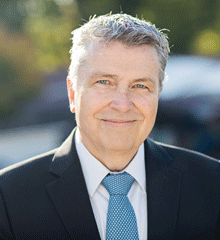 While education is the greatest lever for social change, education systems around the world are falling short. Unacceptable gaps in academic attainments, poor social mobility, rising mental health issues and failure to equip young people with the skills they need for 21st century jobs are some of the consequences of education systems rooted in a bygone era.
While education is the greatest lever for social change, education systems around the world are falling short. Unacceptable gaps in academic attainments, poor social mobility, rising mental health issues and failure to equip young people with the skills they need for 21st century jobs are some of the consequences of education systems rooted in a bygone era.
However, pioneers are beginning to present exciting glimpses into reimagined education — systems with “whole-person learning” at their centre. But pockets of innovation are not enough. Educators need to move away en masse from prevailing systems organised around the narrow set of exams, and think about urgent and increasingly complex global issues that must be resolved. Time is of the essence and we must focus not only on innovation but also on driving systems-wide change — now and in the future.
A century ago, education systems were designed to equip large cohorts of children with basic literacy and numeracy skills for use in manufacturing industries. In developed countries, a standardised model of education was designed to meet this need. Since then, although our education systems have been modernised to some extent, the changes have been modest and too slow.
Meanwhile around the world, there is growing resistance to the spread of globalisation and a return to nationalist movements in favour of separatism and protectionism. In politics, this trend is discernible in Brexit (UK), the upsurge of nationalism in several European countries and momentum that propelled Donald Trump into the presidency of the USA. Narrow nationalism has again become an important force in a globalising world, together with the belief that populism offers easy solutions and simple answers to complex problems. Existing ‘authorities’ and ‘elites’ are experiencing increasing rejection and the rhetoric of political debates has become shrill and vicious.
But while there’s no denying that the hitherto uninterrupted march of globalisation is facing resistance around the world, there’s little chance of slowing down or reversing it. By teaching self-reliance, independence, curiosity, compassion and consideration towards people who are ‘different’, school leaders and teachers can play an important role in removing the apprehensions that have fuelled anti-globalisation sentiments and fanned animosity and intolerance. Schools must prepare students to become strong and mature, and to develop critical thinking skills to resist political manipulation. The mission of schools is to develop responsible global citizens prepared to fight the downsides of globalisation such as injustice, racism and poverty, while simultaneously promoting global harmony, trade and cooperation.
In recent years, it has become increasingly clear that teaching the skills required to improve our world necessitates a paradigm shift in the way we deliver education. Since fear of the unknown breeds ignorance and prejudice, we have a duty to provide our students opportunities to collaborate with people of diverse ethnicities and cultures, especially those most likely to be targeted as ‘the other’. School leaders and teachers have an obligation to consciously teach the skills of communication, collaboration, cooperation and adaptable thinking, which are essential for bridging gaps between people in a rapidly shrinking world. Teaching resilience, communication and critical thinking must become the prime objective of teachers to prepare children to meet the challenges of globalisation. Educators need to inspire students to use new digital technologies to reach out to their peers around the world to discuss common problems of mankind and help the socio-economically disadvantaged through community service, their involvement mirroring the world of work they will ultimately enter with cross-border collaboration becoming commonplace.
Having said this, it’s also imperative that schools must not neglect classic academic education, which is equally necessary for confronting the challenges of globalisation. Robust academic education teaches students to evaluate and appraise information and examine its authenticity and origin. It’s important to bear in mind that social media and their underlying structures and algorithms are increasingly feeding young people around the world with superficial, biased and fake information, often reflecting the divisive and prejudiced opinions of faux intellectuals and false prophets living comfortably in their own unreal information bubbles. The benefit of learning and comprehending history — an important subject in classical education — supplemented with mathematical and scientific training, enables students to independently interpret and evaluate political events and arrive at logical conclusions.
Building on Nelson Mandela’s observation that education is the most powerful weapon to change the world, school leaders and educators need to be in the vanguard of the battle against authoritarian tendencies, anti-democratic movements, and the downsides of globalisation. In accepting the challenge, we render an important service to the world.
(Thomas Schaedler is director-general of College du Leman International Boarding School, Geneva, Switzerland)